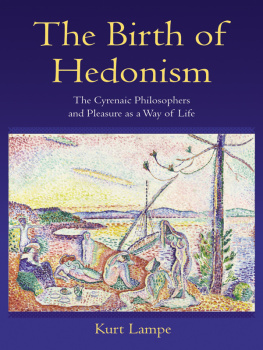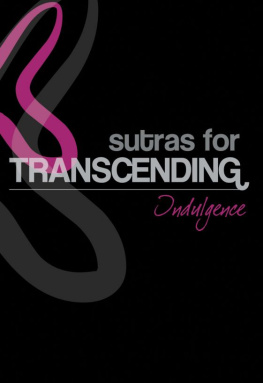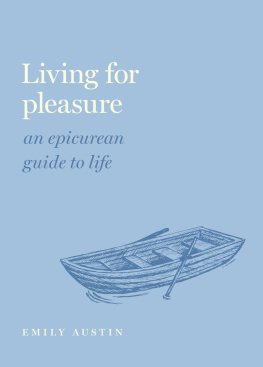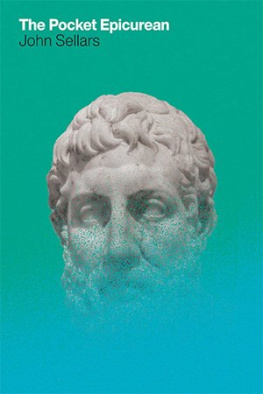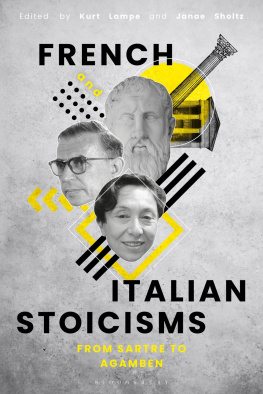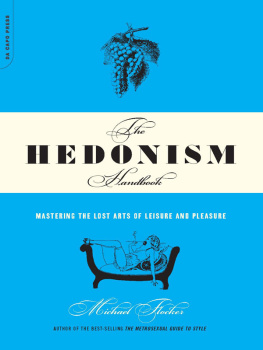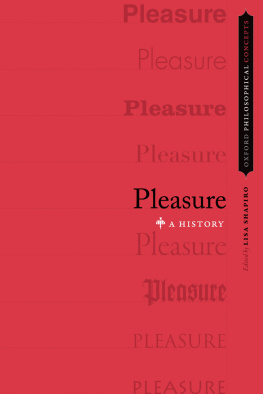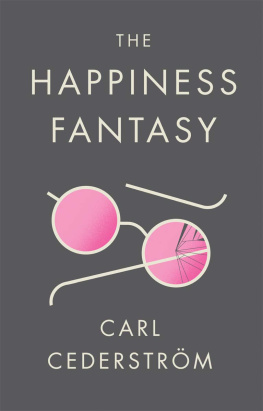Lampe Kurt - The birth of hedonism : the Cyrenaic philosophers and pleasure as a way of life
Here you can read online Lampe Kurt - The birth of hedonism : the Cyrenaic philosophers and pleasure as a way of life full text of the book (entire story) in english for free. Download pdf and epub, get meaning, cover and reviews about this ebook. year: 2015, publisher: Princeton University Press, genre: Science. Description of the work, (preface) as well as reviews are available. Best literature library LitArk.com created for fans of good reading and offers a wide selection of genres:
Romance novel
Science fiction
Adventure
Detective
Science
History
Home and family
Prose
Art
Politics
Computer
Non-fiction
Religion
Business
Children
Humor
Choose a favorite category and find really read worthwhile books. Enjoy immersion in the world of imagination, feel the emotions of the characters or learn something new for yourself, make an fascinating discovery.
- Book:The birth of hedonism : the Cyrenaic philosophers and pleasure as a way of life
- Author:
- Publisher:Princeton University Press
- Genre:
- Year:2015
- Rating:3 / 5
- Favourites:Add to favourites
- Your mark:
The birth of hedonism : the Cyrenaic philosophers and pleasure as a way of life: summary, description and annotation
We offer to read an annotation, description, summary or preface (depends on what the author of the book "The birth of hedonism : the Cyrenaic philosophers and pleasure as a way of life" wrote himself). If you haven't found the necessary information about the book — write in the comments, we will try to find it.
According to Xenophon, Socrates tried to persuade his associate Aristippus to moderate his excessive indulgence in wine, women, and food, arguing that only hard work can bring happiness. Aristippus wasnt convinced. Instead, he and his followers espoused the most radical form of hedonism in ancient Western philosophy. Before the rise of the better known but comparatively ascetic Epicureans, the Cyrenaics pursued a way of life in which moments of pleasure, particularly bodily pleasure, held the highest value. In The Birth of Hedonism, Kurt Lampe provides the most comprehensive account in any language of Cyrenaic ideas and behavior, revolutionizing the understanding of this neglected but important school of philosophy.
The Birth of Hedonism thoroughly and sympathetically reconstructs the doctrines and practices of the Cyrenaics, who were active between the fourth and third centuries BCE. The book examines not only Aristippus and the mainstream Cyrenaics, but also Hegesias, Anniceris, and Theodorus. Contrary to recent scholarship, the book shows that the Cyrenaics, despite giving primary value to discrete pleasurable experiences, accepted the dominant Greek philosophical belief that life-long happiness and the virtues that sustain it are the principal concerns of ethics. The book also offers the first in-depth effort to understand Theodoruss atheism and Hegesiass pessimism, both of which are extremely unusual in ancient Greek philosophy and which raise the interesting question of hedonisms relationship to pessimism and atheism. Finally, the book explores the new Cyrenaicism of the nineteenth-century writer and classicist Walter Pater, who drew out the enduring philosophical interest of Cyrenaic hedonism more than any other modern thinker.
Lampe Kurt: author's other books
Who wrote The birth of hedonism : the Cyrenaic philosophers and pleasure as a way of life? Find out the surname, the name of the author of the book and a list of all author's works by series.

